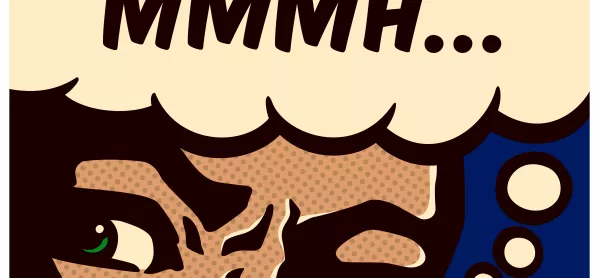- Home
- Spare me the cynicism of the teaching naysayers
Spare me the cynicism of the teaching naysayers

It is, if you believe the news, a tough time to be a teacher. Almost two-thirds of teachers are considering or have previously thought about leaving the profession. The BBC’s School mini-series has painted a picture of financial meltdown, low morale and peak stress among pupils. Lucy Kellaway’s despatches from the frontline of her Teach Now initiative have similarly often come across as anti-adverts to anyone considering leaving their established careers for what she calls a “brutal” profession.
These news stories irritate the hell out of me. I recently defected from a senior position in the world of corporate brand consulting in order to become a trainee English teacher. I’ve found that such stories fail to capture the sheer determination, engagement and commitment of the teachers I know. The drip, drip, drip of negative reporting fails to present a balanced or believable picture.
Yes, teaching is tough. Yes, the hours are horrendous. Yes, money is too tight to mention. Yes, pupil behaviour can be shocking. But none of this is news. And none of these factors is unique to teaching. In the creative services industry, the hours are just as taxing and holidays much shorter; budgets and margins get smaller every year; and among clients - and colleagues - the propensity for lying, cheating and backstabbing is as alive and well as it was in Don Draper’s heyday.
But in teaching, you change lives for the better, and for ever, and you can see it happening right in front of your eyes. The results can be instantaneous, and the rewards utterly unforgettable.
The irony for me is that I entered the world of brand consulting thinking I could achieve those sort of transformative results - I was part of that insanely optimistic Blairite Britpop tribe. Youthful energy and optimism were reshaping the world. We wore trainers to move fast. We had fantastically chunky mobile phones. And we had the internet. Who could stop us?
We talked to corporate clients about marketing as an enlightened form of social engineering, and they lapped it up. With Boots, we set out to change gender stereotypes by creating a different kind of make-up advertising. With Clarks, we were on a mission to liberate our repressed inner children, and lead more joyful lives. With BT, we were going to open people’s eyes to the power of communication to forge a better world.
But, of course, as has always been the way in the world of marketing, our greatest success was with ourselves. Our belief was unwavering. Until 9/11 and the Iraq War, at least. Certainly, that was around the time when I found the painful disparity between what people say and what they do too glaring to ignore any longer. A new cynicism was birthed that, over the years, introduced an ever-more realistic and pragmatic vernacular into my conversations with clients. Gradually, all pretence of doing anything other than pleasing shareholders by winning over consumers was abandoned. Share of wallet, eyeballs and brand advocacy became all we ever talked about.
So becoming a teacher has been a long drink of cool water. Once again, I find myself surrounded by people who know what they believe - and, for a change, have the facts to back it up. People who are on a mission to do the right thing, to make the world a better place, not to accept merely OK as good enough. People who are passionate, fiercely well-read or, if not, determinedly hungry to read almost every spare hour in the week.
But what about the students? That’s what I always get asked. Aren’t they almost total strangers to books these days? Do they give a toss for your Shakespeare, Eliot and Austen? Once again, the pernicious reach of negative reporting is evidenced in these preconceptions. My reality is otherwise. One of my students has just finished reading War and Peace - on her phone. And last week I gave a mock Oxbridge interview to the daughter of first generation Somali immigrants who calmly quoted Orwell and Kipling at me, before going on to discuss the views of de Tocqueville and Alexander Hamilton in the context of contemporary American politics. These students are exceptional, I find, but not atypical.
So next time I read the latest scaremongering statistics about teachers leaving the profession, I say good riddance quietly to myself. I know there are enough good people out there, and good students to boot, to keep hope alive.
Freddie Baveystock is an English teacher at Harris Westminster Sixth Form
For World Teachers’ Day 2019, Tes is having a new teacher takeover - every piece published on our website on 5 October will be by a new or early career teacher. Find the rest of the articles at our World Teachers’ Day hub
Keep reading for just £1 per month
You've reached your limit of free articles this month. Subscribe for £1 per month for three months and get:
- Unlimited access to all Tes magazine content
- Exclusive subscriber-only stories
- Award-winning email newsletters